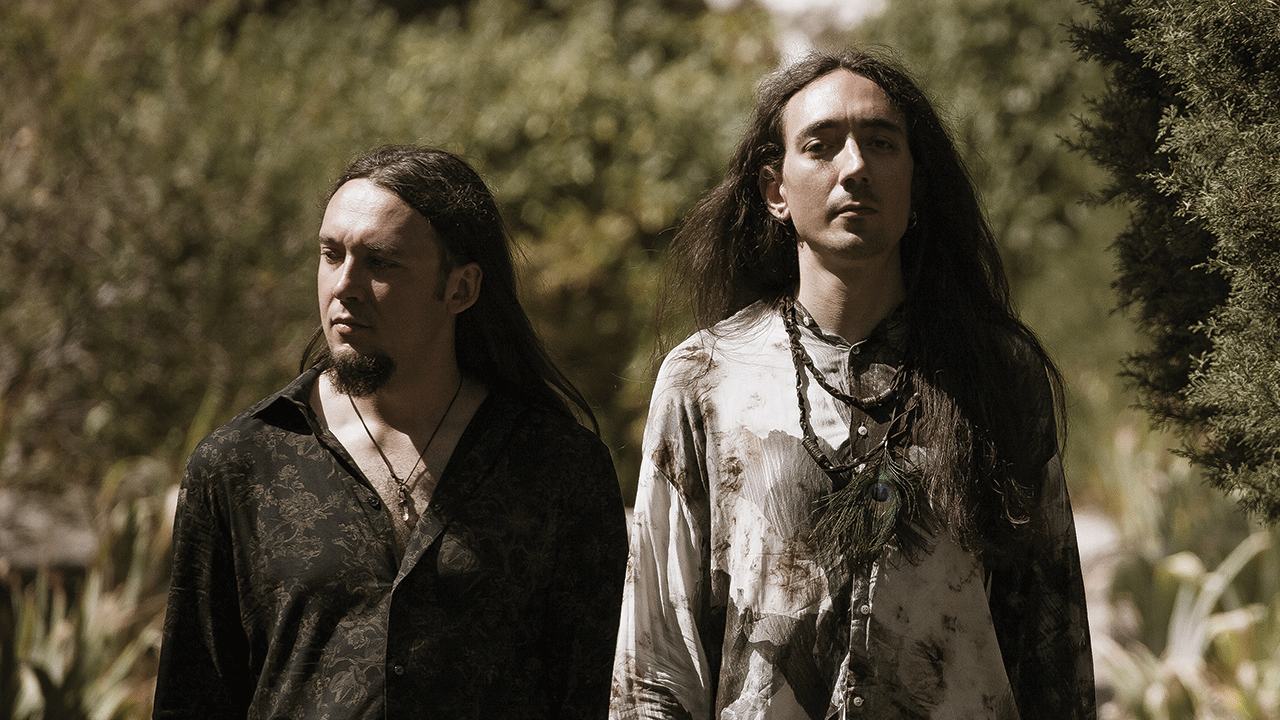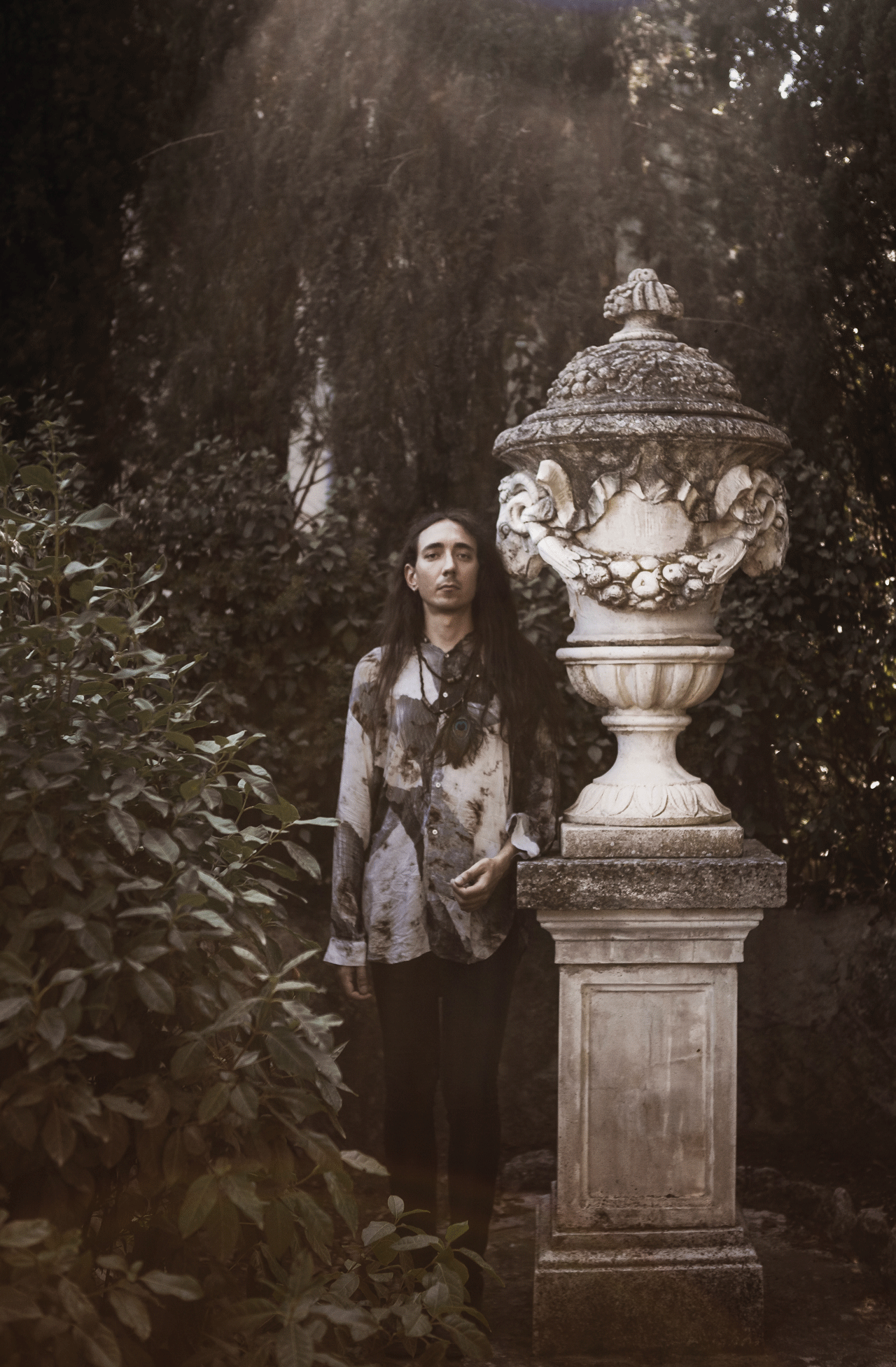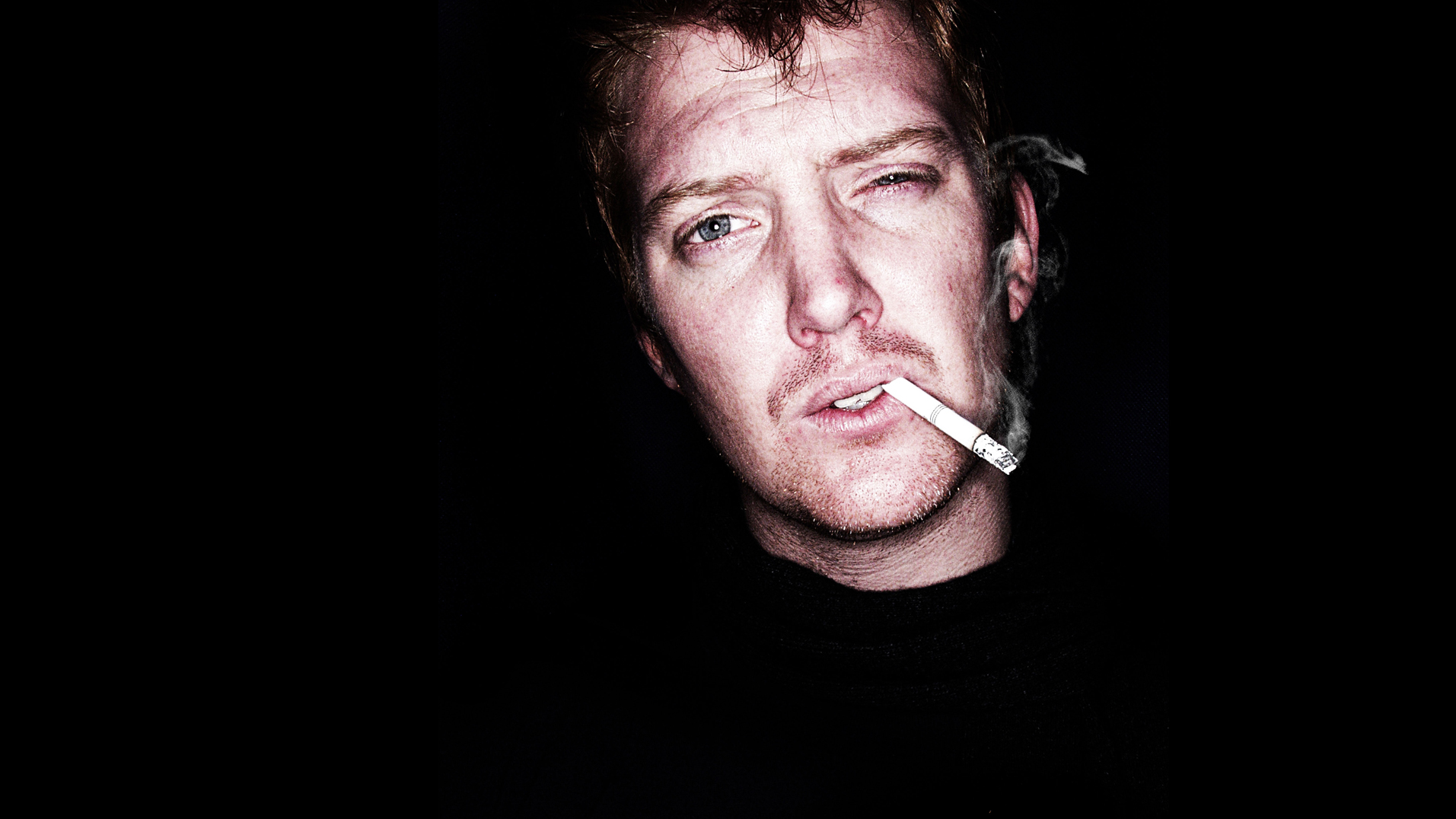How Alcest invented blackgaze and brought spirituality to black metal
Neige has been seeing strange visions of heaven since he was a child. With Alcest, the singer has been trying to find his way back to paradise

Select the newsletters you’d like to receive. Then, add your email to sign up.
You are now subscribed
Your newsletter sign-up was successful
Want to add more newsletters?

Every Friday
Louder
Louder’s weekly newsletter is jam-packed with the team’s personal highlights from the last seven days, including features, breaking news, reviews and tons of juicy exclusives from the world of alternative music.

Every Friday
Classic Rock
The Classic Rock newsletter is an essential read for the discerning rock fan. Every week we bring you the news, reviews and the very best features and interviews from our extensive archive. Written by rock fans for rock fans.

Every Friday
Metal Hammer
For the last four decades Metal Hammer has been the world’s greatest metal magazine. Created by metalheads for metalheads, ‘Hammer takes you behind the scenes, closer to the action, and nearer to the bands that you love the most.

Every Friday
Prog
The Prog newsletter brings you the very best of Prog Magazine and our website, every Friday. We'll deliver you the very latest news from the Prog universe, informative features and archive material from Prog’s impressive vault.
Stéphane Paut was four years old when he saw his first vision of heaven, and he’s been chasing it ever since.
This wasn’t a heaven in the Christian sense, he explains today. There were no bearded, omnipresent figures or angels plucking harps on clouds. But it was certainly heavenly. And it definitely wasn’t anywhere here on Earth.
“It was this huge wave, like coming up on acid or something,” he says. “Then there was the picture of heaven. This glowing landscape, music floating in the air, colours that don’t even exist here. It was a spiritual experience that changed me to the core.”
He had similar visions regularly throughout his childhood. What he saw was a little different each time, but it was always the same place. His mother took him to see mediums and spiritualists to find out what was happening to him.
“Some of them said I wasn’t from here,” he says, then sighs. “Man, that’s the story of my life. Even my band doesn’t sound like anything else. I cannot find my place.”
Today, Stéphane calls himself Neige – ‘snow’ in his native French. As the singer, guitarist and creative heart of ‘blackgaze’ pioneers Alcest (drummer Winterhalter joined in 2009), he single-handedly seeded a new strain of metal, one that blended the brittle noise of black metal with blissful, dreamlike waves of sound that evoked… well, the place he saw in his visions.
“I was trying to put it in a musical form,” he says. “It’s always been difficult to have one foot here and one foot in this other place that I have seen. I’ve always felt that I didn’t belong here. That’s created a lot of tension for me.”
Sign up below to get the latest from Metal Hammer, plus exclusive special offers, direct to your inbox!
That tension has played out across every Alcest album, and never more so than on their sixth, Spiritual Instinct, whose title refers to the metaphysical urge that Neige says drives his entire existence. The different parts of his personality – the ethereal and the corporeal – manifest themselves in his two contrasting vocal styles: one beatific and angelic, one tortured and screaming.
“The crystal clear voice, that’s the ethereal, heavenly, otherwordly me,” he says.
And the screams?
“They’re the screams of frustration of a soul trapped in a body like this. This isn’t rock’n’roll. For me it’s a matter of life and death. This band is my quest.”

If there really is a soul trapped in Neige struggling to break free, it’s having a nap right now. Sitting in the London offices of Alcest’s new record label, Nuclear Blast, he seems neither frustrated nor crazy, merely a quiet and modest 34-year-old Frenchman in a Type O Negative shirt.
But there’s an unwavering intent to the way he talks about the “spiritual journey” that began with the visions he started having as a child. “Spirituality means you experience things by yourself, you don’t follow any guide or apply any abstract dogmas to your life with no reason,” he says. “I have always had this need for spirituality. It’s a physical need, something that’s present deep inside me. That’s why I use the word ‘instinct’. It’s something I can’t live without.”
There’s one word he comes back to during our conversation: outsider. He uses it to describe everything from Alcest’s place in the metal scene to his own existential feelings of not belonging. “I’ve always felt like a fucking outsider,” he says with a mix of resignation and bitterness. “Everywhere.”
He was born in the small town of Bagnols-sur-Céze in the south of France, the only child of parents who both worked at a nearby nuclear power plant. There was a distance between him and his father. “We were very different. He’s a man’s man. I was a dreamer.” He laughs. “Now he sees that I’m making a bit of money and I don’t need to get a real job anymore, we’re fine.”
When the visions began, he kept it quiet. “I thought everyone had them. I didn’t know it was not normal.” Why does he think it happen to him? He shrugs. “I have no idea.”
The visions played into the rich inner world that existed in his head, a tapestry that included anime, video and role-playing games and, later, metal. He discovered the latter in his early teens after hearing Cradle Of Filth, drawn in by the inhumanity of the music.
“I went straight from listening to Nirvana to black metal,” he says. “It was like listening to nothing from this world. It was the sound of the forest screaming. I guess I had some kind of anger in me. Maybe this feeling of not being in the right place.”
This outsider found a home of sorts in the French black metal scene, a milieu that was even more cliquey and clandestine than its Scandinavian counterparts. “Very elitist, very evil, very conservative,” he says. “When you’re 15 you’re drawn to that, but when you get a little older, you can see that it’s fucking bullshit.”’
Neige founded Alcest as a pure black metal band in 2000, when he was 15. He played in other groups too. Most notable – and notorious – was Peste Noire, a project founded by Ludovic Van Alst, aka Famine, whose noxious views on race and nationalism aligned them with the scene’s right wing fringe. Neige was a session drummer for Peste Noire during the early-to-mid 2000s. He sounds genuinely remorseful about his involvement now.
“It was completely my mistake. I was too young to realise how bad it was to play in a band like this. It was, like, ‘OK, he has shit in his head, but he’s the only guy I knew playing black metal.’ I was never into that ideology. My message is only love. Love for everyone.”
Deliberately or not, Neige used Alcest to pivot away from all of that. 2005’s debut EP, Le Secret, introduced celestial atmospherics and almost genderless vocals into the black metal miasma. It was the sound of Stéphane Paut translating his visions into music.
Neige’s celestial approach reached its peak on 2014’s coruscating Shelter, an album that boldly dispensed entirely with anything approaching metal. But with 2016’s Kodama and now Spiritual Instinct, he has pulled back from that.
“When you decide to follow a spiritual journey in your life, you cannot lie to yourself,” he says. “You have to accept who you are. You have to face your darkness. I wanted to put some of that into Alcest’s music, to show that spirituality is not only New Age bullshit.”
Neige says he still sees this place he first saw as a child in visions today, though it’s less vivid. “Much, much lighter,” he says. “But it’s still there.”
Everything comes back to that place. He believes in “a heaven, but not in Christian way”, and he believes in the idea of the soul. And he certainly believes in reincarnation. “Yes,” he says simply. “I think I have been here before.”
When he was younger, Neige read Life After Life by psychologist Raymond Moody. In it, Moody spoke to people who claimed to have experienced Near Death Experiences.
“All the people were saying the same thing, no matter which country or culture they came from – these heavenly landscapes, where you don’t know if there’s music in the colour,” he says.
“And that was very close to what I was seeing in my visions. What if these people were describing some kind of after-death place? It could have been that I had kept some memory of it in my current life. That it’s a memory of the place I was in between two lives.”
Are you scared of death?
“No. I’m scared of pain and losing people around me, but my own death? No.”
If you were to step out on the road and get hit by a car, what happens? He shrugs. “I go back home.”
Neige describes Spiritual Instinct is the product of two years of turmoil. He won’t be drawn into specifics, saying only that he has “a lot of anxiety issues” and that he suffers from chronic insomnia.
“I kind of lost touch with myself,” he says. “Sometimes you don’t really know who you are any more. You lose touch with the things that you like to do. You can lose touch with your beliefs.”
He stopped drinking for a year, but it didn’t help. “It’s strange,” he says. “You expect to go, ‘I feel reborn.’ But I just felt sad.” He’s started meditating and doing yoga. “I’m trying to stay as healthy as possible but I have so much pressure. I put so much pressure on myself that I need an escape.”
Is it working?
“This is the darkest I’ve been,” he admits. Another shrug. “That’s OK.”
It’s unsettling hearing someone who professes to have no fear of death talking like this. It’s hard not to think of all the people music has lost to suicide. Is Neige on that path?
“No,” he says instantly. “I’ve never had those thoughts. It’s just… difficult. My life isn’t fun. But with Alcest, I want to make people feel good. I want to spread positive energies and a message of hope. The message that death doesn’t exist.”
The meeting room door opens. Our time is up. Neige has to be at Heathrow airport in an hour to fly to Germany for more promotion. But the spiritual quest he’s on will take him somewhere else entirely. Somewhere between Earth and who knows where.
Spiritual Instinct is out now via Nuclear Blast. Alcest are currently on tour in the UK, see below for tour dates.
Your handy guide to the world of blackgaze
The Originators: Slowdive
Reading’s Slowdive were neither the first British indie band to be saddled with the then-derogatory term ‘shoegaze’ in the early 90s, nor were they the best – that honour goes to avant-garde noiseniks My Bloody Valentine. But few have had such an impact on the modern blackgaze scene, acting as touchstone for Alcest’s Neige and Deafheaven, amongst others.
Listen to: Just For A Day (1991)
The Pioneers - Alcest
Neige is the undoubted godfather of the blackgaze scene, even if his marriage of European black metal and early 90s British shoegaze came about by accident – he says he only started listening to the latter after making 2005’s ground-breaking Le Secret EP. “People started saying, ‘Have you listened to Slowdive?’ I was, like, ‘I’ve never heard of them.’”
Listen to: Shelter (2014)
The Hipsters - Deafheaven
Unarguably the band most likely to take blackgaze into the mainstream – 2015’s New Bermuda made the US Top 70. Their defiantly non-metal image and willingness to incorporate everything from dream-pop to indie rock has rattled the purists’ cages.
Listen to: Sunbather (2013)
The Enigmas - Ghost Bath
When Ghost Bath emerged, they sparked a minor controversy by claiming to be from China when they actually hailed from North Dakota. Frontman Dennis Mikula, aka Nameless, said it was to protect the band’s privacy. But this bizarre deception actually suited their dark, enigmatic music.
Listen to: Moonlover (2015)
The Depressives - King Woman
Blackgaze is hardly the most upbeat genre, but King Woman take it to new levels. Formed in the Bay Area, their host-of-angels-on-a-massive-downer is the perfect soundtrack to a slow-motion plunge into hell.
Listen to: Created In The Image Of Suffering (2017)
Alcest UK tour dates 2020
Mar 4: London, Heaven
Mar 5: Manchester, Gorilla
Mar 6: Bristol, The Fleece
Dave Everley has been writing about and occasionally humming along to music since the early 90s. During that time, he has been Deputy Editor on Kerrang! and Classic Rock, Associate Editor on Q magazine and staff writer/tea boy on Raw, not necessarily in that order. He has written for Metal Hammer, Louder, Prog, the Observer, Select, Mojo, the Evening Standard and the totally legendary Ultrakill. He is still waiting for Billy Gibbons to send him a bottle of hot sauce he was promised several years ago.

